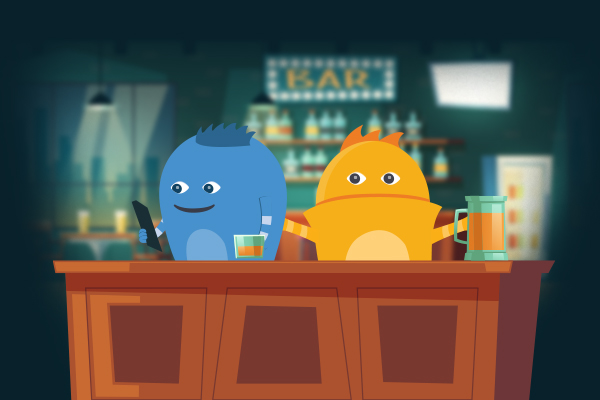
What is phubbing and how does it destroy family dinners
Do you tend to look at your phone whenever you’re with a friend, a family member, or even just making small talk with someone you know? Or, is the right question really, how often do you look at your phone? Obviously, when we look around us, we see many people scrolling their phones while meeting in person with others. This has become a phenomenon that even has a name—Phubbing.
Defining Phubbing
Phubbing, the splicing together of the words phone and snubbing, seizes the situation of people scrolling their phones while interacting face-to-face with other people. It was first introduced 10 years ago by an Australian advertising agency that launched a ‘Stop Phubbing’ campaign. Phubbing prevalence is troubling; 51% of American people in a relationship reported being phubbed. Only 9% of young adults aged 18-29 said their partner is never distracted by their phones while having a conversation. Apparently, Phubbing’s frequency rises in closer relationships.
The main reasons for phubbing are the fear of missing out (also known as FOMO), boredom, and loneliness. Dreading a difficult conversation or reaction is another factor that drives people to their phones during a face-to-face interaction. On top of all, reciprocity helps spread the phenomenon—phubbing a person will encourage them to behave the same.
Phubbing effects
Phubbing affects our lives in many aspects, such as parenthood, relationships, and work. Young children have reported feeling unimportant upon competing with technology over their parents’ attention. This can result in adverse effects such as anxiety and depression in teenagers. Phubbing lowers In-partner relationships’ satisfaction as it compromises the quality of conversations.
Phubbing has also intruded into the workplace—supervisor phubbing negatively affects employees’ outcomes.
Is Phubbing a phone addiction?
Let’s start from the bottom line: Phubbing is not an addiction, although it is a symptom of pathological smartphone use. In other words, if you are addicted to the internet and to your smartphone, you are likely to Phub others. However, you can be phubbing without being a phone addict—and that is a silent killer of face-to-face interactions that should worry all.
Balancing use & reducing phubbing
It is hard to reduce or prioritize the phone’s use as it’s designed to attract our attention subconsciously. It is a one-stop-shop for all our social media, messaging, video streaming, footage documentation, and other online leisure activities.
The notifications, ringtones, and alarms phatic thresholds trigger us to swipe and check out what we missed. Overall, it is tough to find the right balance of use and to be aware of the phubbing moments that are unnecessary and even offensive.
As strange as it might sound, smartphone apps can help reduce the act of phubbing. Most phone providers have pre-installed apps to help control screen time use. Focusing apps initially designed to help users concentrate on work without phone distractions can also be used in face-to-face interactions to eliminate the chances of phubbing. Moderating the phone’s notification sounds can help reduce ‘noise’ in our lives. Apps that help users prepare for difficult conversations and improve their communication skills, as CommReady’s app does, are essential for people who Phub to avoid a conversation in person.
The key is to be aware of your phubbing action triggers. Although the phenomenon’s characteristics are similar, the actual reason and act are personal. Nailing down the cause can help you put away the phone during a face-to-face interaction, reducing your counterpart’s frustration or phubbing back.
Here are three Phubbing awareness’ key-questions you should keep in mind:
- When you sit in a social event (family dinner, a night out for a beer with friends, etc.). Do you find yourself scrolling your phone?
- What triggers you to go for the phone: a notification sound, pure FOMO, boredom, other?
- If your counterpart reaches for their phone during your social meeting. How does that make you feel?
Comments are closed.

